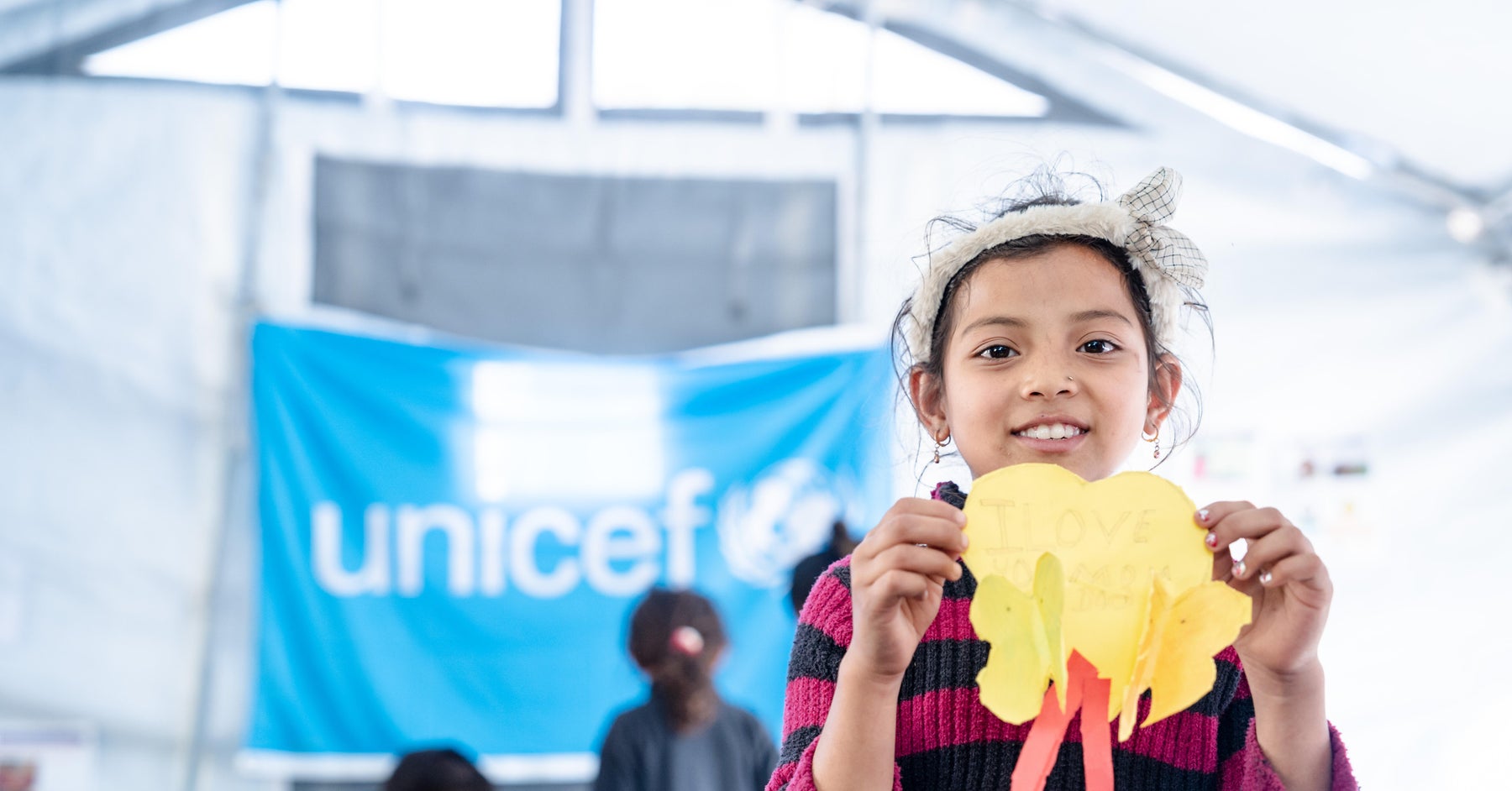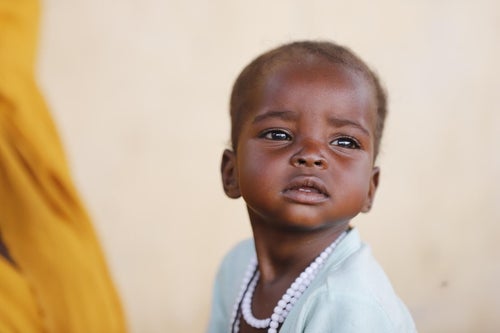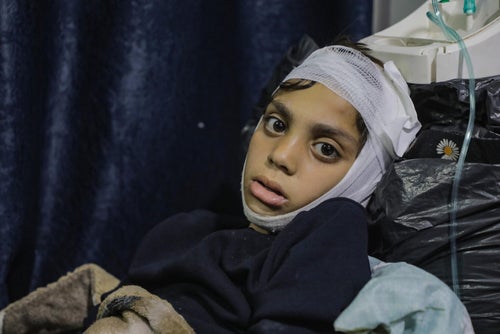From conflicts to climate disasters, 2023 was a tough year to be a child in countries where emergency after emergency impacted their rights. In a year when humanitarian needs have never been greater, UNICEF continued to deliver for children and young people, no matter where they were, with over 17,000 staff working across more than 190 countries and territories.
This included reaching more than 23 million people with safe drinking water and vaccinating 27 million children against measles. Alongside our partners, UNICEF also provided over 150 million children with services for the early detection and treatment of child wasting – one of the deadliest forms of malnutrition.
As we settle into the new year, let’s take a moment to look back and reflect on some of our key achievements for children around the world in 2023, from the Gaza Strip to Sudan, Ukraine to Syria, and beyond. All of this is possible because of people like you. Thank you for helping us be there for children.
1. Delivering lifesaving supplies to Gaza
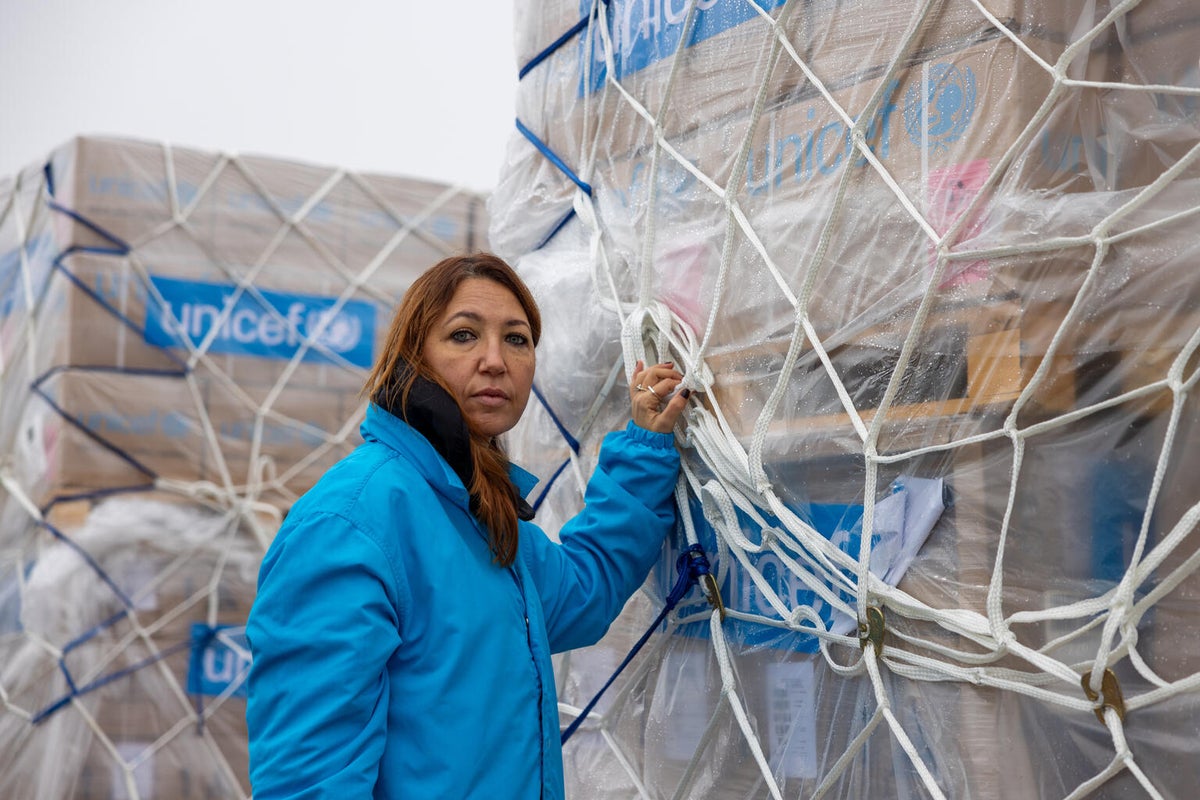
Since 7 October, almost every child in the Gaza Strip has been exposed to deeply distressing events and trauma, marked by widespread destruction, relentless attacks, displacement, and severe shortages of essential necessities such as food, water, and medicine.
Despite the enormous challenges every humanitarian organisation is facing getting aid into Gaza, more than 250 UNICEF trucks entered the territory between 7 October and 31 December with lifesaving supplies such as thermal blankets, water purification tablets, medicines and medical equipment, nutrition, water, and hygiene, sanitation, and education supplies.
Our teams are also on the ground in Gaza delivering mental health and psychosocial support to children and their families, as well as closely monitoring child rights violations, providing humanitarian cash assistance, and establishing safe spaces for vulnerable children and women within the territory.
Since the escalation of this conflict, UNICEF has delivered:
- 50,000 litres of fuel, allowing public and private water wells and desalination plants to produce clean water, reaching 1,326,000 people
- child protection, mental health, and psychosocial support services to over 52,100 children
- and multi-purpose cash assistance (MPCA) and top-ups to nearly 500,000 people.
UNICEF will continue to stay in Gaza and deliver for children, no matter what it takes. But without an immediate and long-lasting humanitarian ceasefire, Gaza will continue to be the most dangerous place in the world to be a child.
"An immediate and long-lasting humanitarian ceasefire is the only way to end the killing and injuring of children, and child deaths from disease, and enable the urgent delivery of desperately needed lifesaving aid."
2. Running emotional support programs in Ukraine
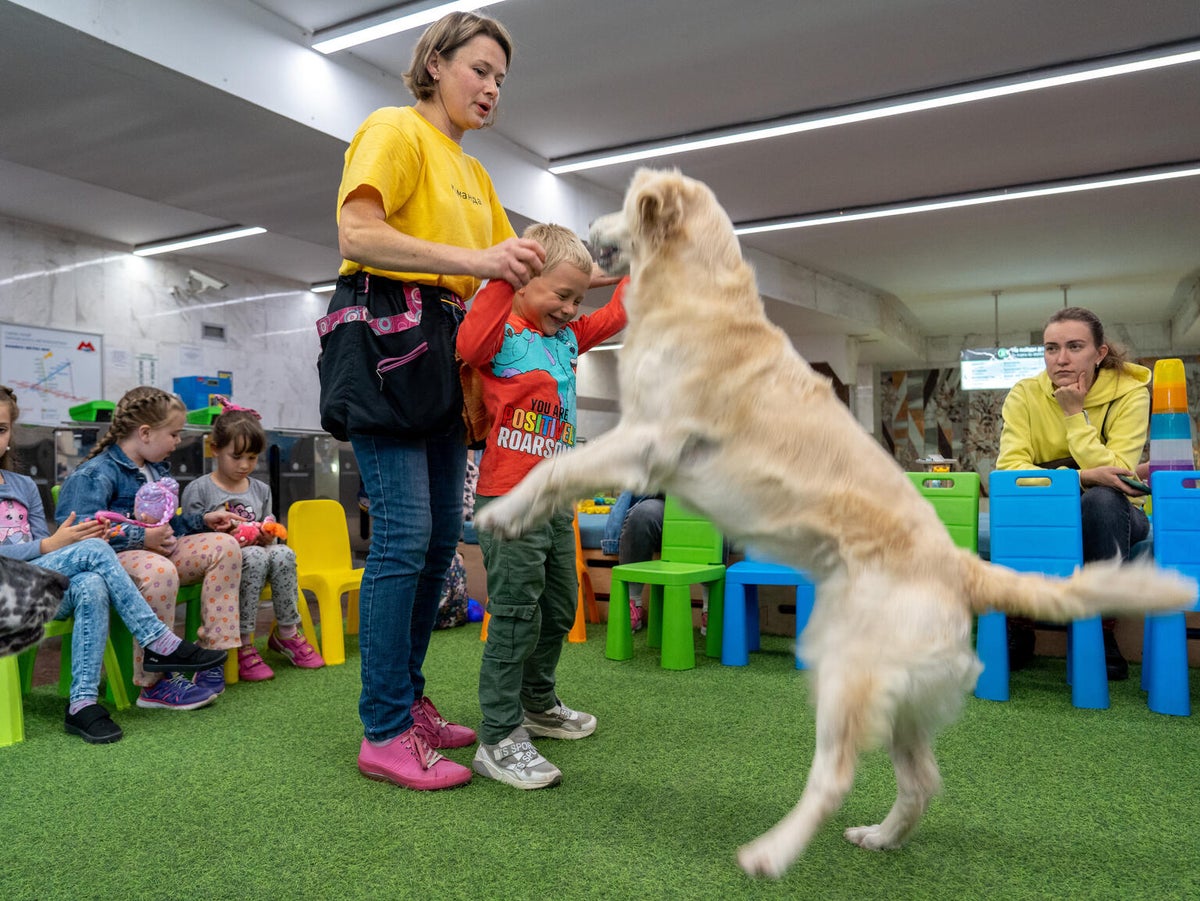
Children and families in Ukraine have endured almost two years of escalating violence, trauma, destruction, and displacement. It’s a scary place to be a child. UNICEF remains on the ground to provide support to children and families in need, implementing programs including heartwarming therapy classes, where dogs bring a sense of joy, normalcy and emotional support to children who have been through so much.
Twice a week, trainer and volunteer Natalia and her two dogs, Julie the retriever and Petra the English setter, run free classes in a Spilno Child Spot in Kharkiv’s metro. It is one of the only places in the city that children can go to escape the horrifying realities of war. They also double as bomb shelters, which means that children no longer need to interrupt their classes and games to go to safety during air raids.
"Therapy is usually a very long process. But these classes are a quick way for a child to feel positive emotions, relax and communicate in a safe environment."
3. Supporting families after the devastating earthquakes in Syria
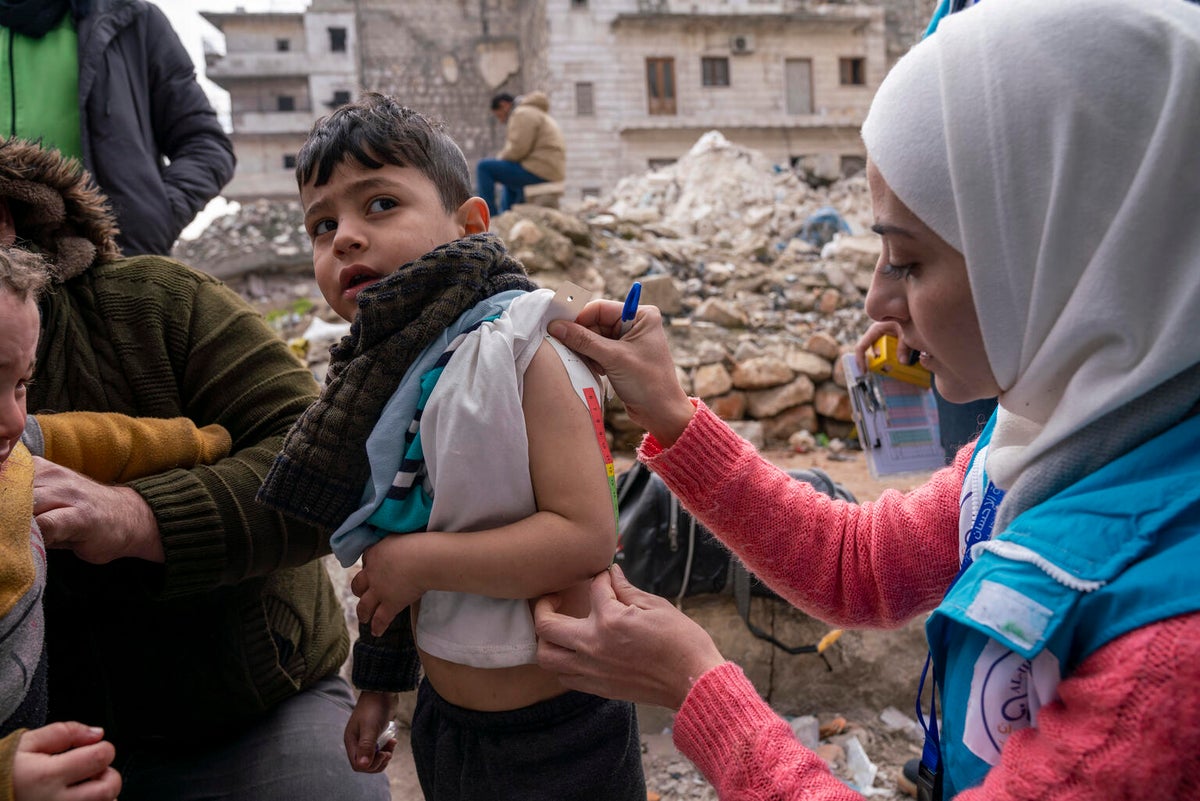
On 6 February 2023, more than 59,000 people were killed and millions were impacted when two severe earthquakes hit south-east Türkiye and north-west Syria. The humanitarian situation in Syria was already at breaking point after more than ten years of civil war, and the earthquakes left many children and their families homeless and without access to essentials like food, clean water, education, and medical care. Food insecurity in Syria has soared to its highest level in 12 years.
Almost one year after the earthquakes, UNICEF continues to work tirelessly to provide lifesaving assistance to affected children and communities in Syria, as well as support the rehabilitation of damaged infrastructure and restoration of basic services. In 2023, UNICEF reached:
- 1.5 million children and nearly 167,000 women across Syria with primary healthcare services
- over 1 million children and more than 970,000 women with nutrition services.
This support was provided through 54 mobile clinics and 78 fixed clinics in the country.
"When I go to sleep, I feel that I’m never sure what tomorrow will bring. Uncertainty is everywhere, but we keep going to support the people who need us."
4. Providing winter supplies to flood-affected Pakistan
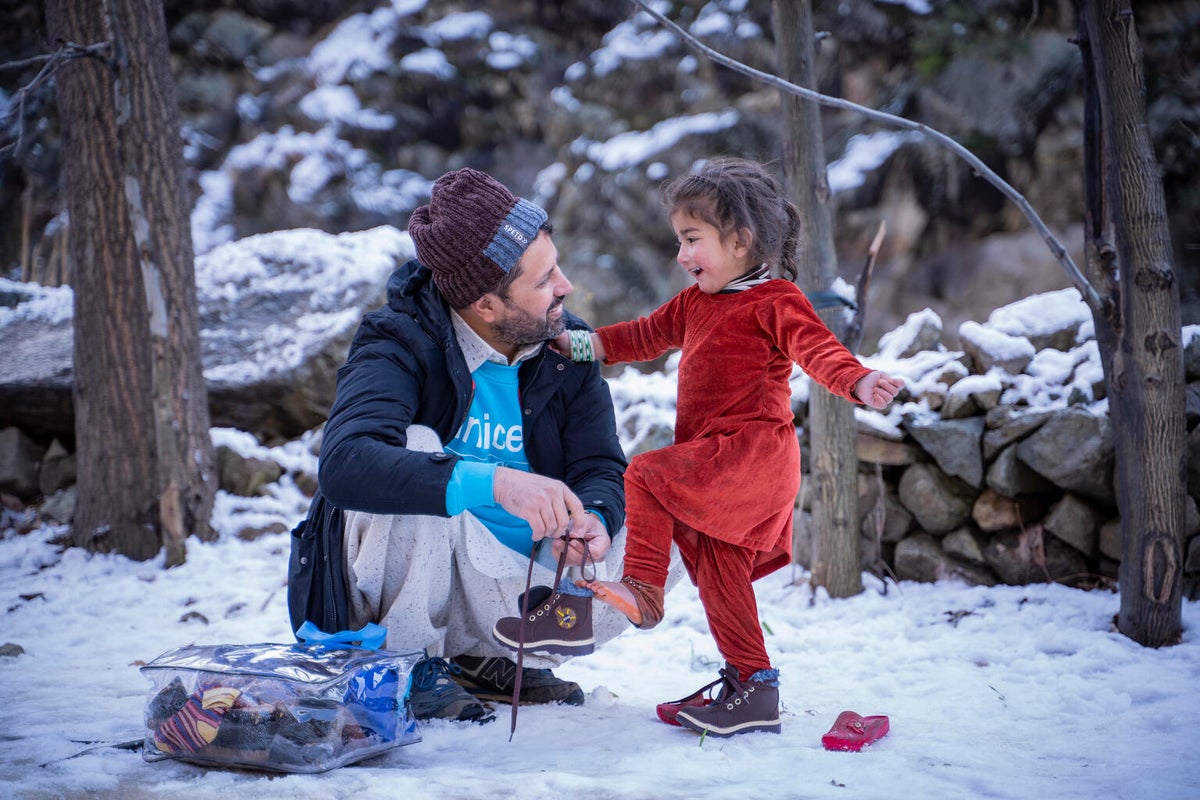
In August 2022, historic floods submerged a third of Pakistan, taking almost 1,800 lives and destroying over 2 million homes right before winter arrived. UNICEF immediately delivered lifesaving supplies to displaced children and families including thermal blankets and winter clothes such as jackets, hats, socks and shoes. As needs grew into 2023, UNICEF procured more supplies to support children through the harsh weather.
More than a year on from the floods, the lives of children and young people in Pakistan continue to be impacted. As of August 2023, UNICEF and its partners have:
- screened 2.1 million children for severe acute malnutrition and admitted 172,000 children for lifesaving treatment
- enabled safe water access for 1.7 million people in areas where water networks were damaged or destroyed
- reached over 545,000 children and caregivers with mental health and psychosocial support.
With climate change already worsening the frequency and severity of natural disasters including flooding, we are working with the government to strengthen Pakistan’s climate resilience and emergency preparedness at the national and provincial levels.
"It will take families several more months, if not years to rebuild what they lost in the floods but with our assistance, they know that they are not alone in their struggle."
5. Improving health outcomes for displaced children in Sudan
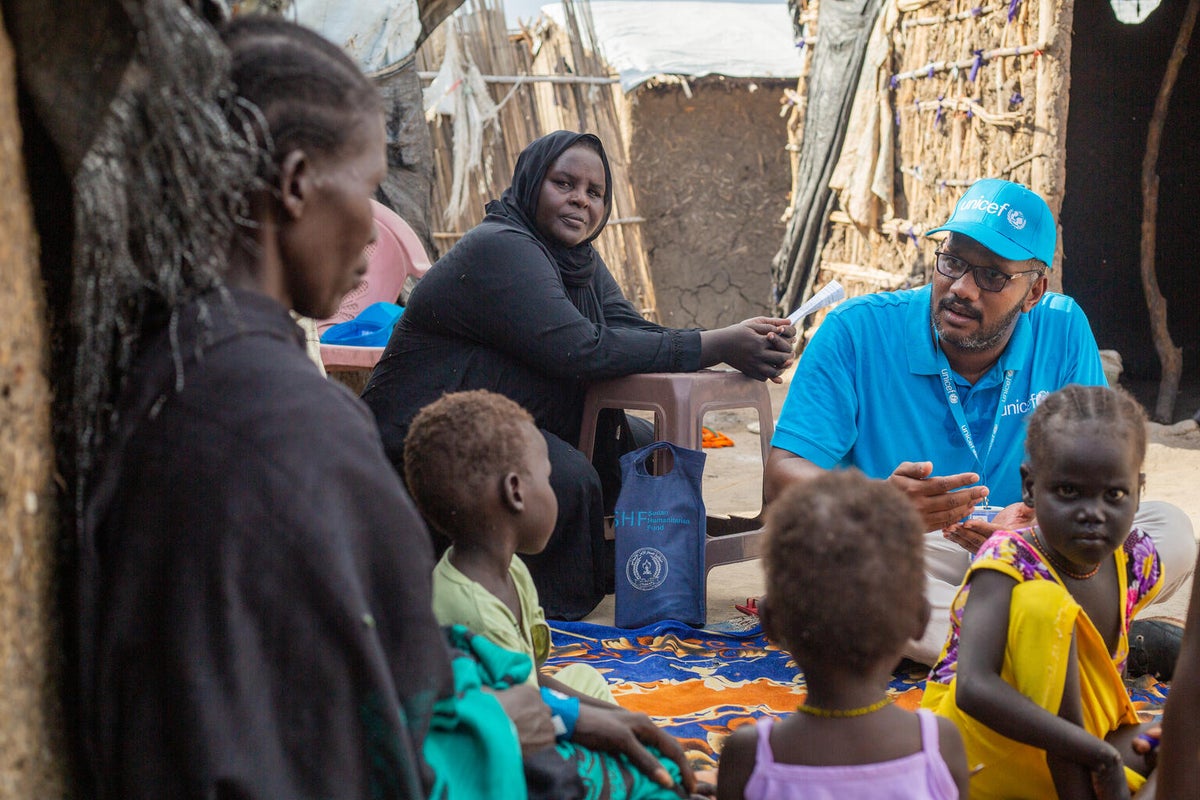
Since the outbreak of war in Sudan in April 2023, the conflict has spread to more than half of all states, threatening the lives of children and their families and leaving many without access to adequate food, water, education, and basic health and sanitation services. Nearly 3.5 million children have fled their homes in what is the largest child displacement crisis in the world, and over 14 million children in Sudan require urgent humanitarian assistance, the highest number ever recorded in the country.
While there are challenges reaching those in need due to ongoing fighting, UNICEF remains in Sudan to deliver assistance to children and families in conflict hotspots and areas receiving an influx of internally displaced people. That includes the Accelerated Child Survival campaign to address rising cases of measles and malnutrition. Through the program, over 40,000 children living in refugee camps and in host communities have received lifesaving services including measles immunisation and malnutrition treatment.
"I miss my friends Omnia, Fatuma and Farida, my toys and dolls. I wish the war will stop. I want to go home."
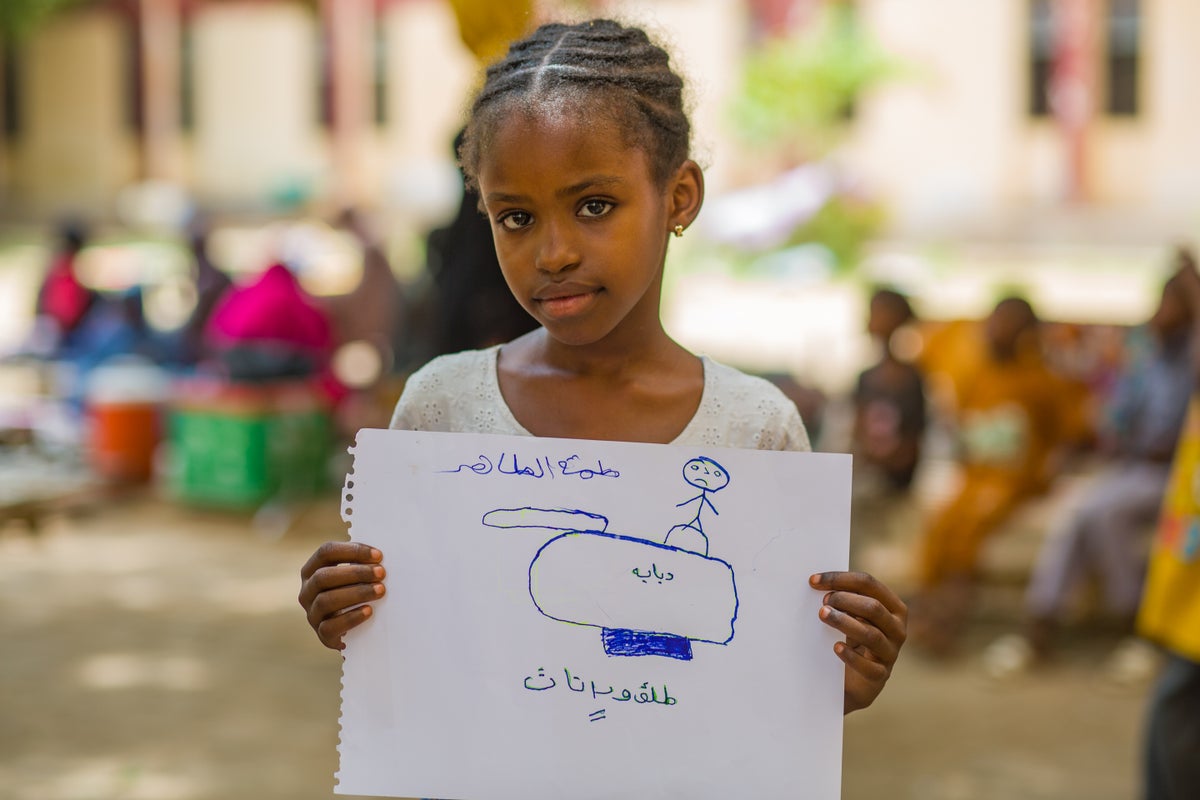
A new year and new hope for children
Today, there are more children in need of humanitarian assistance than at any other time since the Second World War. If 2023 is any guide, 2024 is set to be another challenging year for children and young people around the globe. But while many hurdles remain, UNICEF’s achievements in 2023 have shown that there is still hope. When we prioritise the rights and wellbeing of children, we can create a better world for them to live in.
"As we move into 2024, it is essential for leaders to work towards preventing conflicts and providing support for children who have been affected, ensuring that they can access education and rebuild their lives."
Every single child, no matter who they are or where they live, deserves safety and protection. This is why UNICEF is there for every child before, during, and after emergencies - no matter what.
Children in Emergencies
UNICEF is providing urgent assistance to children. But we can’t do it alone. We need your help today.
Related articles
Stay up-to-date on UNICEF's work in Australia and around the world



